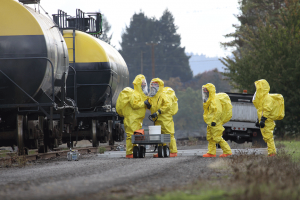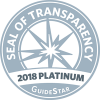
The Los Angeles County Regional Training Center is now:
Menu
California POST Certified :: Certification Number: 1287-24190- & 24193
**Session-I is POST Plan IV reimbursable (Subsistence, Commuter Lunch & Travel)
This iteration is presented by the Bay Area Training and Exercise Program. There is no cost for attending this course. It has been funded by the Bay Area Urban Areas Security Initiative (BAUASI). Agencies from the below counties will receive priority consideration and may register at the BATEP website. For additional information on BATEP, or to create your training account, please contact:
Captain Juan Daniels, San Francisco Police Department
Special Operations Bureau – The Urban Areas Security Initiative (UASI)
Office Mobile: 415-307-5044
Email Address: juan.daniels@sfgov.org
Critical Incident Management
Course ID No.: 250324-EOC-UASI-C01
Virtual Session: 01/24/25 to 03/23/25
Session-1, In class: 03/24/25 to 03/28/25
Session-2, In class: 04/22/25 to 04/25/25
Students must attend all three parts listed above
(888) 782-4969
training@thertc.org
All course registrations must go through the BATEP website. The Regional Training Center (RTC) is unable to assist you in creating, updating or reseting your BATEP account. For assistance please contact Captain Daniels at the above information.
Simply registering for this course does not guarantee you a spot in this training program. All registrations will be set to a “Standby” status by default. Shortly after registering, you will receive a followup email from The RTC with information on completing your registration. Once approved by the selection committee, you will be notified of your enrollment.
Important Cancellation Note:
We understand that life and work can present unexpected challenges which may cause you to alter your availability. Because this high-demand training program has limited seating, we ask that you please notify The RTC and Captain Daniels as soon as you are aware of any possible conflicts that may arise.
This training program is California POST Certified and students must meet the attendance requirements set by POST. Students are required to attend all three sessions (virtual, session-1 & session-2) in order to successfully complete the program. Students who are unable to commit to the entire program will be asked to withdraw their registration and attend a later iteration.
This course was created to achieve measurable student outcomes utilizing blended learning, classroom facilitation, and scenario-based training for critical incident commanders. Students will demonstrate the ability to apply intuitive sense-making strategies while working in a fast-changing, chaotic environment by using the 5 tenets of Working in The Edge of Chaos ©.
The training begins online prior to the two in-class training sessions. This class is intended for first- and second-line supervisors who will be the first-responding incident commander at the scene of a large-scale, critical incident. When possible, LACRTC staff select students from the iteration registration list that reflect diversity related to agency size, structure, and regional resources to maximize student contributions and learning. Graduates of this course will have the knowledge and skills to establish and maintain a productive and purposed incident command.
Course Length: 9 days in-class, 8 hours online (80 hours total)
CA POST Approval: 1287-24190 & 1287-24193
Max Class Size: 21 Students
Recommended For: Supervisors and second level in-field managers
This class is for supervisors who will be the first-responding incident commander at the scene of a large-scale, critical incident. It is unique because it focuses on the thinking process of why and how ICS is used within the NIMS framework, claiming that without this understanding, an incident  commander will be unable to use ICS in such a way that will allow them to successfully work through the initial, chaotic phase of a critical incident. Based on solidly accepted and broadly-based research, the course begins with introducing the student to such topics as the Cynefin framework (Dr. David Snowden), Sensemaking (Karl E. Weick), Mental Slides (Dr. Arjen Boin), and characteristics of High-Reliability Organizations (Ericksen & Dyer, Cornell University). The most important of these topics is Sensemaking and its embedded working pieces of adaptability, manipulation, and improvisation of all of the following: environment, bad actors, and responding resources at the scene of a large-scale, critical incident.
commander will be unable to use ICS in such a way that will allow them to successfully work through the initial, chaotic phase of a critical incident. Based on solidly accepted and broadly-based research, the course begins with introducing the student to such topics as the Cynefin framework (Dr. David Snowden), Sensemaking (Karl E. Weick), Mental Slides (Dr. Arjen Boin), and characteristics of High-Reliability Organizations (Ericksen & Dyer, Cornell University). The most important of these topics is Sensemaking and its embedded working pieces of adaptability, manipulation, and improvisation of all of the following: environment, bad actors, and responding resources at the scene of a large-scale, critical incident.
While these topics are indisputably founded in academic research, they would have limited usefulness without experienced practitioners to vet the ideas and determine how they actually function in the real world of critical incident response. To that end, a small team of extremely experienced law enforcement ranking officers reviewed this research, found it to be sound in application to the field, and then crafted the second  week of instruction that puts to use the concepts learned in the first week solely through the teaching tool of reality-based scenario training. This is the second completely unique aspect of this class. Unlike others that use computer simulators to create a virtual environment, camera footage from previous events, or scripted tabletop exercises, research, again, shows that the benefit of stress inoculation to actual field performance (Lt. Col. Dave Grossman and Amanda Ripley’s work with the US Special Forces) is undeniable. In order to gain this, all senses must be engaged: sight, sound, hearing, smell, and, if possible, taste. This course offers a 32 hour week of intensive reality-based scenario training using role players and physical environment to create and accomplish just this. In an even more unique aspect, there are no scripts for these events. A live police dispatcher is used over real police radios, just as it would happen in the field, and because of this, each student not only participates in the scenario but creates it as they take action or choose inaction. These scenarios are very student intensive, with each student being placed in the role of incident commander several times throughout the class with instructors closely monitoring their actions, failures, and successes. The last day is reserved for the instructors to speak with each student individually and give him/her specific feedback on his/her performance in order to allow them to improve in future critical incidents.
week of instruction that puts to use the concepts learned in the first week solely through the teaching tool of reality-based scenario training. This is the second completely unique aspect of this class. Unlike others that use computer simulators to create a virtual environment, camera footage from previous events, or scripted tabletop exercises, research, again, shows that the benefit of stress inoculation to actual field performance (Lt. Col. Dave Grossman and Amanda Ripley’s work with the US Special Forces) is undeniable. In order to gain this, all senses must be engaged: sight, sound, hearing, smell, and, if possible, taste. This course offers a 32 hour week of intensive reality-based scenario training using role players and physical environment to create and accomplish just this. In an even more unique aspect, there are no scripts for these events. A live police dispatcher is used over real police radios, just as it would happen in the field, and because of this, each student not only participates in the scenario but creates it as they take action or choose inaction. These scenarios are very student intensive, with each student being placed in the role of incident commander several times throughout the class with instructors closely monitoring their actions, failures, and successes. The last day is reserved for the instructors to speak with each student individually and give him/her specific feedback on his/her performance in order to allow them to improve in future critical incidents.
Finally, this course is the beginning of individual cohorts per course session that interact with each other and their instructors in an online, MOODLE environment that works much like the Naval Postgraduate School National Security Studies M.A. program does: students are given pertinent reading and writing assignments on-line three weeks before the class starts; they have additional assignments in between the two-course sessions; and, finally, upon completion of the course, that cohort is admitted to the broader alumni group on-line where experiences, research, and contacts may be shared, thus creating a library of constantly evolving best practices in the field of critical incident response.
 This is a California POST certified class and a nationwide DHS certified class. Past course offerings received reviews from students such as, “This is the best course I have ever attended”; “This is unlike any training I have ever attended before”; “Every ranking officer in our command staff needs to go through this class”; and “I will be using this information back at my department.” Several students individually emailed instructors immediately following the course to tell them how much they learned from their experience. While that can be typical with a class, the unique event that speaks to the success of this course is that even six months after its conclusion, students are still emailing the instructors to discuss their successes and challenges with applying principles from the class to their work environment and asking for further resources.
This is a California POST certified class and a nationwide DHS certified class. Past course offerings received reviews from students such as, “This is the best course I have ever attended”; “This is unlike any training I have ever attended before”; “Every ranking officer in our command staff needs to go through this class”; and “I will be using this information back at my department.” Several students individually emailed instructors immediately following the course to tell them how much they learned from their experience. While that can be typical with a class, the unique event that speaks to the success of this course is that even six months after its conclusion, students are still emailing the instructors to discuss their successes and challenges with applying principles from the class to their work environment and asking for further resources.
Alameda County Sheriff’s Office – Office of Emergency Services
4985 Broder Blvd., Dublin, CA 94568
Venue Website
The Regional Training Center (RTC) is committed to respecting and protecting the privacy of our customers. Your information will not be shared with third-party providers of any kind or utilized for purposes outside of updates regarding our training courses and offerings. For additional information, please see our Terms & Conditions.
Mailing Address:
17595 Mt Herrmann St.
Fountain Valley CA 92708
office: (888) 782-4969
support@thertc.org

© The Regional Training Center 2023
Fountain Valley, California :: Burnet, Texas :: Land O’ Lakes, Florida